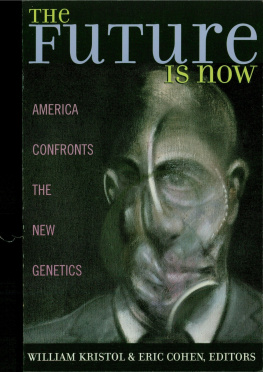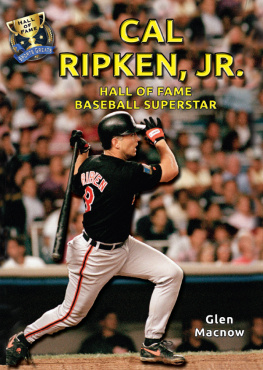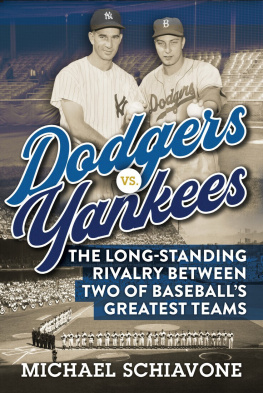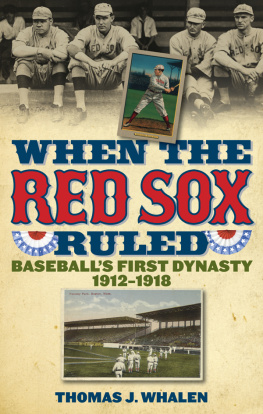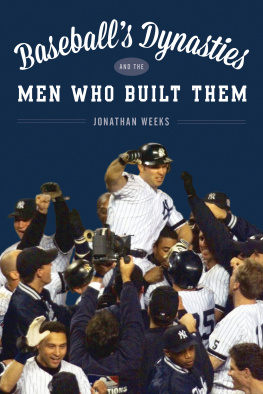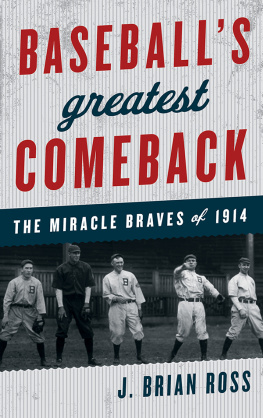Eric Longenhagen - Future Value: The Battle for Baseballs Soul and How Teams Will Find the Next Superstar
Here you can read online Eric Longenhagen - Future Value: The Battle for Baseballs Soul and How Teams Will Find the Next Superstar full text of the book (entire story) in english for free. Download pdf and epub, get meaning, cover and reviews about this ebook. year: 2020, genre: Romance novel. Description of the work, (preface) as well as reviews are available. Best literature library LitArk.com created for fans of good reading and offers a wide selection of genres:
Romance novel
Science fiction
Adventure
Detective
Science
History
Home and family
Prose
Art
Politics
Computer
Non-fiction
Religion
Business
Children
Humor
Choose a favorite category and find really read worthwhile books. Enjoy immersion in the world of imagination, feel the emotions of the characters or learn something new for yourself, make an fascinating discovery.

- Book:Future Value: The Battle for Baseballs Soul and How Teams Will Find the Next Superstar
- Author:
- Genre:
- Year:2020
- Rating:5 / 5
- Favourites:Add to favourites
- Your mark:
- 100
- 1
- 2
- 3
- 4
- 5
Future Value: The Battle for Baseballs Soul and How Teams Will Find the Next Superstar: summary, description and annotation
We offer to read an annotation, description, summary or preface (depends on what the author of the book "Future Value: The Battle for Baseballs Soul and How Teams Will Find the Next Superstar" wrote himself). If you haven't found the necessary information about the book — write in the comments, we will try to find it.
Eric Longenhagen: author's other books
Who wrote Future Value: The Battle for Baseballs Soul and How Teams Will Find the Next Superstar? Find out the surname, the name of the author of the book and a list of all author's works by series.
Future Value: The Battle for Baseballs Soul and How Teams Will Find the Next Superstar — read online for free the complete book (whole text) full work
Below is the text of the book, divided by pages. System saving the place of the last page read, allows you to conveniently read the book "Future Value: The Battle for Baseballs Soul and How Teams Will Find the Next Superstar" online for free, without having to search again every time where you left off. Put a bookmark, and you can go to the page where you finished reading at any time.
Font size:
Interval:
Bookmark:
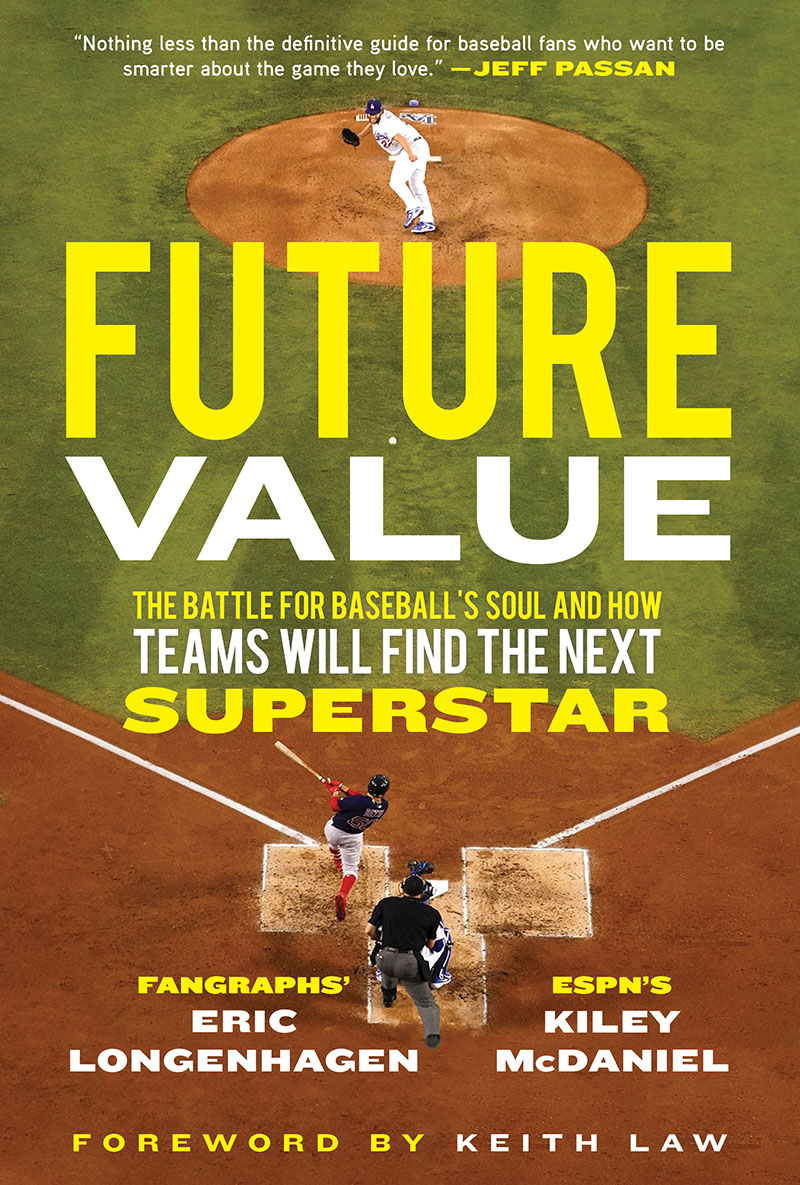
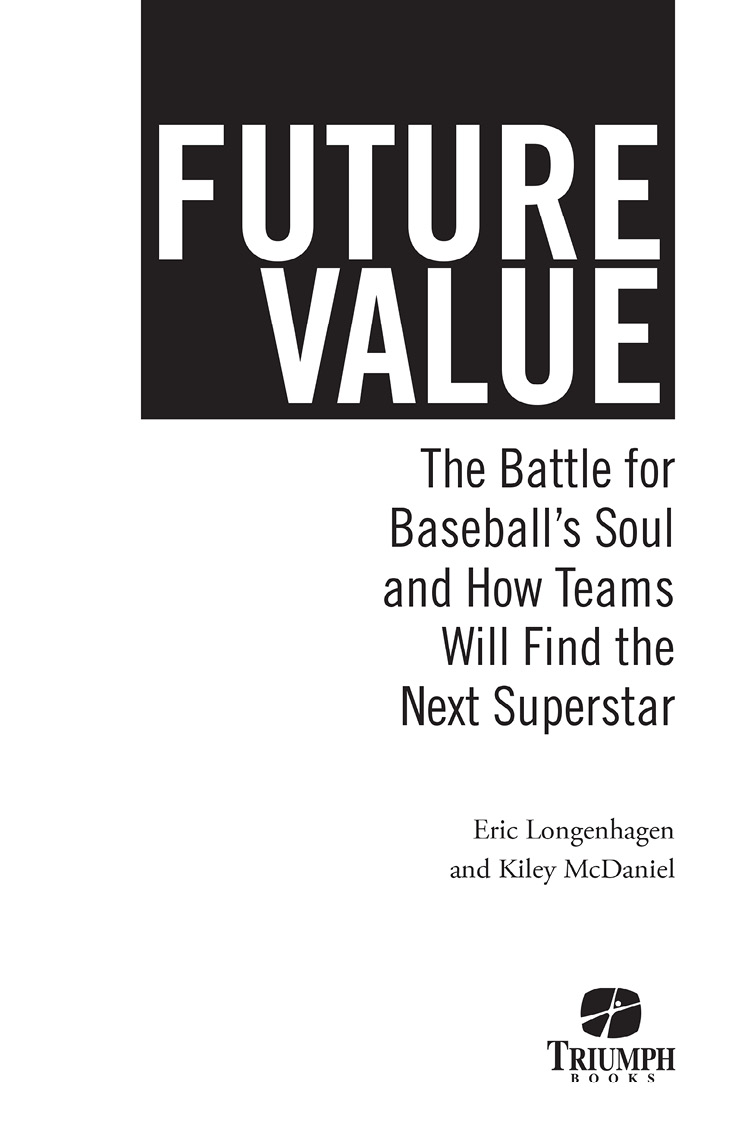
For our parents, and other enablers
Contents
Foreword by Keith Law
Baseball scouting is at a crossroads as we enter the 2020 season. Just as multiple teams have moved away from traditional scoutingthe Houston Astros have almost completely eliminated their domestic scouting operations, and other clubs have trimmed their staffs as a form of mimicrythe need for the information scouts can provide would appear to be higher than ever, and the return on the investment in scouting can be positive with just one or two successful player acquisitions.
I first began working for the Toronto Blue Jays in 2002, at a point when scouting was the only game in town. I was the entire statistical analysis department, which rather overstates the extent of my capabilities. But compare my department of one to roughly 20 scouts covering amateur players for each years draft, another dozen or so pro scouts, some unknown number of scouts in the international department (many of whom were part-time), and so-called special assignment scouts who existed outside of those three scouting departments and reported directly to the general manager. Teams had very little statistical information that wasnt publicly available; it was easier to get minor league data, especially split data (e.g., performance against left- or right-handed pitchers), in ready-to-use formats, but the numbers themselves werent proprietary or confidential. The main way to differentiate your decision-making from that of other teams, short of hiring analysts, was to have better scouts.
In my 18 years in the business, the last 14 of them as a writer for ESPN and now The Athletic, however, the way the industry perceives and employs scouts has changed dramatically, and I dont think it has changed for the better. There are fewer scouting jobs in baseball than there have been in decades, likely the fewest since the expansions of the 1960s increased the number of scouting jobs by increasing the number of teams. Twenty years ago, only the Oakland As had any significant statistical analysis capability in their front office; today, all 30 teams have entire departments, often called research & development, and youll hear executives mocking the teams that havent done enough to keep up on the analytics front.
If everyone has a sizable analytics department, however, that one big competitive advantage you could get by adding one is now off the table; you have to have the department just to be in the game at all. You might hire better analysts, or hire more of them, although theyre expensive since those jobs tend to require PhDs and you compete to hire those folks with major tech companies.
Consider swing optimization, one of the most visible ways in which a team can help a player change his entire game in a short period of time. Teams like to look for players who make hard contact, but tend to do so with a launch anglethe angle between the balls path as it leaves the bat and the groundthat is not conducive to power. The Dodgers have done this a few times recently, with other teams castoffs like Max Muncy and Chris Taylor, as well as with their own prospects like Will Smith, with great success. Theyre not alone, and there are more things you can do to help players than just tweaking how they get their hands ready or get the bat head into the zone. Analysts can help teams identify which players have certain leading indicators in their datasuch as hard contact with a suboptimal launch anglethat might make those players good candidates for overhauls.
But not every player can make those adjustments; if they could, the baseball world would be overrun with future stars. Whose job is it to identify which players might have that capacity to learn, to make adjustments, to execute something different physically from what theyve been doing their whole baseball lives? Scouts do that. Scouts go to the games and talk to players and coaches and gather a different kind of data. Sure, scouts go and offer evaluations of whether a player can hit or whether a pitchers curveball is average or plus or a slow roller or loopy or just a show-me pitch that he casts out of his handand thats still data, just data of another sort. But theres a role for scouts in helping teams figure out which players are more likely to be willing and able to make the adjustments their analysts and their player-development staffs will want them to make. You can lead a horse to water, but you cant make him change his launch angle if he doesnt want to. If Im running a team, and Im looking for that next Max Muncy, Im asking my R&D folks and my scouts, and when they agree, thats the player Im going to go out and get. Theres still a place for scouts in this brave new world.
Eric Longenhagen and Kiley McDaniel are your guides, pulling back the veil on my favorite part of the baseball industry and one of its most fascinating areas, the world of scouting. Both worked for me while I was at ESPN and I couldnt be prouder of how much theyve gone on to achieve since then. In Future Value a nod to one of the more important evaluations a scout can give, the Future Value (FV) grade, saying just how good he thinks the player in question will eventually becomethey give you the grand tour of scouting without asking you to leave your couch. Theyll walk you through the draft, the most important three days in the entire year for amateur scouting; the Wild West of international free agency (where players can sign at age 16, and often strike verbal deals with teams before theyre teenagers); and professional scouting, where scouts evaluate players already in the minor leagues. Theyll walk through some of the basics of scouting. And they wrap it all up by talking about the intersection of scouting and data, and that very crossroads I mentioned at the start of this foreword. You couldnt ask for a better pair of tour guides. Buckle up.
Keith Law
Authors Note
We dont think its reasonable to expect everyone who picks up this book to have an opinion about our objectivity the way some might from reading our collective work for the last decade. Those who do not, especially those who refer to their favorite team as we, are at risk of being pissed at us for presenting unflattering facts or opinions about their favorite club sometime during this book.
Inherent in baseball is an awful lot of failure, from all parties involved, and not even those atop their field are immune to it. Recognizing this about ourselves is part and parcel of thriving in baseball, and any attention called to successes and failures in this book is only to help illustrate a point, not with the intent of bolstering nor denigrating those involved. Taking unwarranted shots at people would destroy our credibility in the game that were lucky to work in. We fuck up too, after all. And well continue to, in perpetuity. Trying not to is part of what makes this so much fun.
Everyone working in baseball is grinding, exhausted to the point where many emotions are just wrung out of them. This may seem far-fetched to passionate baseball nerds apt to pick up this book, but a lot of those making a living from the game are nodding to themselves right now. Our opinions in this book are strong, but unemotional, not because we choose to feel this way, but because it just happened as an ironic, arguably tragic byproduct of our passion and pursuit. We look at baseball differently than those who wear a jersey to the ballpark. Its not better or worse. Were not belittling anyone. Its just different.
The last chapter of the book breaks down how each team goes about their business and you can see the more successful organizations (either by process or outcomes) tend to have more positive things written about them in the other chapters. In the interest of transparency, were taking time to roll up our sleeves, show you our hands, and divulge details about where weve worked or come close to working. We have contacts with all 30 teams, some of which are the folks who chose not to hire us or have been publicly critical of our work or of the field of professional prospect analysis generally. And were cool with that.
Font size:
Interval:
Bookmark:
Similar books «Future Value: The Battle for Baseballs Soul and How Teams Will Find the Next Superstar»
Look at similar books to Future Value: The Battle for Baseballs Soul and How Teams Will Find the Next Superstar. We have selected literature similar in name and meaning in the hope of providing readers with more options to find new, interesting, not yet read works.
Discussion, reviews of the book Future Value: The Battle for Baseballs Soul and How Teams Will Find the Next Superstar and just readers' own opinions. Leave your comments, write what you think about the work, its meaning or the main characters. Specify what exactly you liked and what you didn't like, and why you think so.

